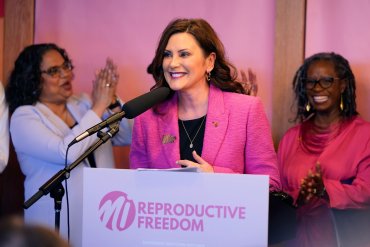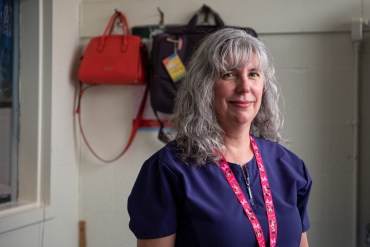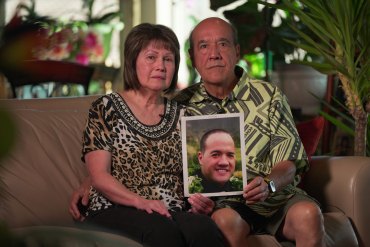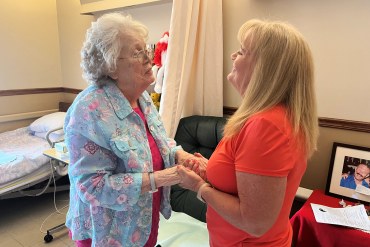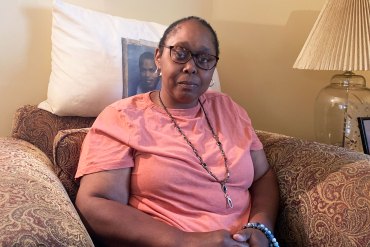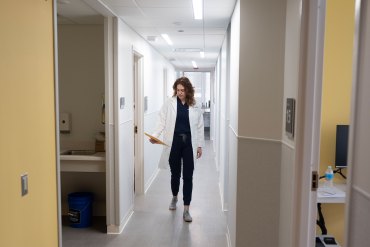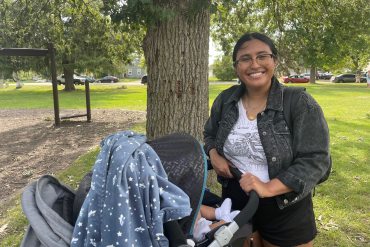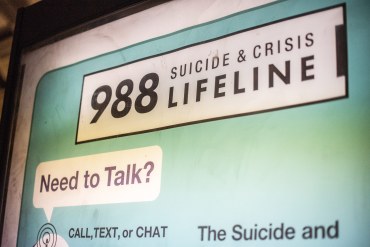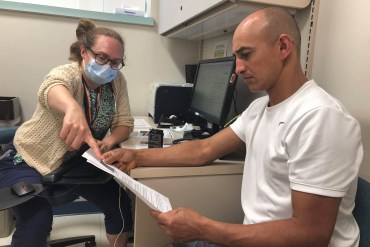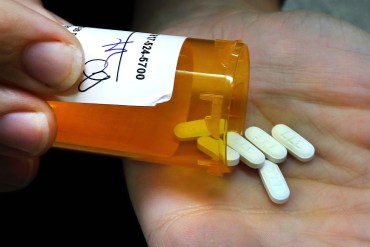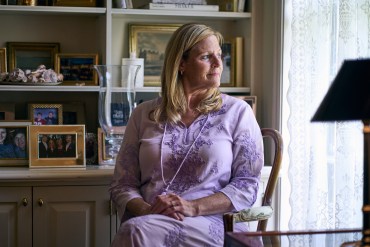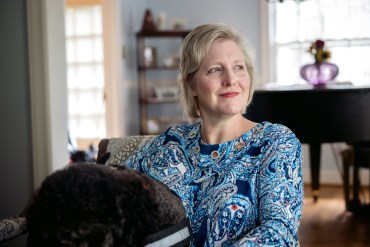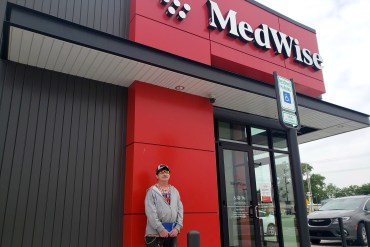Using Opioid Settlement Cash for Police Gear Like Squad Cars and Scanners Sparks Debate
State and local governments will receive a windfall of more than $50 billion over 18 years from settlements with companies that made, sold, or distributed opioid painkillers. Using the funds for law enforcement has triggered important questions about what the money was meant for.
Abortion Coverage Is Limited or Unavailable at a Quarter of Large Workplaces
A KFF survey of employer health benefits shows that 28% of large U.S. companies have limited or no access to abortion under company health insurance.
Michigan Voters Backed Abortion Rights. Now Democrats Want to Go Further.
Michigan is one of the few remaining abortion havens in the Midwest. But getting an abortion in that state is still more difficult than it should be, providers say.
A Third of Schools Don’t Have a Nurse. Here’s Why That’s a Problem.
School nurses treat children daily for a wide range of illnesses and injuries, and sometimes serve as a young patient’s only health provider. They also function as a point person for critical public health interventions. Yet many states don’t require them, and school districts struggle to hire them.
Doctors Abandon a Diagnosis Used to Justify Police Custody Deaths. It Might Live On, Anyway.
The American College of Emergency Physicians agreed to withdraw its 2009 white paper on excited delirium, removing the only official medical pillar of support left for the theory that has played a key role in absolving police of culpability for in-custody deaths.
Who Polices Hospitals Merging Across Markets? States Give Different Answers
Increasingly, hospitals are merging across separate markets within states. It’s a move that health economists and the Federal Trade Commission have been closely watching, as evidence shows such mergers raise prices for patients with no improvement in care.
Officials Agree: Use Settlement Funds to Curb Youth Addiction. But the ‘How’ Gets Hairy.
Parents, educators, and elected officials agree that investing in school-based prevention efforts could help curb the rising rate of youth drug overdoses. The well-known D.A.R.E. program is one likely choice, but its effectiveness is in question.
Rural Nursing Home Supporters Fear Proposed Staffing Standards Will Trigger More Closures
The Biden administration says a recently proposed minimum staffing standard would help ensure quality care, but nursing home leaders predict many rural facilities would struggle to meet it.
Social Security Overpays Billions to People, Many on Disability. Then It Demands the Money Back.
Beneficiaries in five states described what happened when they received letters calling on them to return overpayments that can reach tens of thousands of dollars or more.
As More Patients Email Doctors, Health Systems Start Charging Fees
Doctors say billing for email consultations reduces message volume and gives them more free time. The increasingly prevalent practice has also raised fears about negative impacts to patient care.
Abortion Bans Fuel a Rise in High-Risk Patients Heading to Illinois Hospitals
High-risk patients from states that heavily restrict abortion are coming to hospitals in states such as Illinois that protect abortion rights. The journey can mean more medical risks and higher bills.
Despite Successes, Addiction Treatment Programs for Families Struggle to Stay Open
Residential addiction treatment programs that allow parents to bring their children along have been recognized for their success. But a mix of logistical challenges and low reimbursement rates mean they struggle to stay afloat.
Most States Have Yet to Permanently Fund 988. Call Centers Want Certainty.
For rural Americans, who live in areas often short of mental health services and die by suicide at a far higher rate than urbanites, the federally mandated crisis phone line is one of the few options to connect with a crisis counselor.
‘Like a Russian Roulette’: US Military Firefighters Grapple With Unknowns of PFAS Exposure
Federal research linking “forever chemicals” to testicular cancer confirms what U.S. military personnel long suspected. But as they seek testing for PFAS exposure, many wonder what to do with the results. There’s no medical treatment yet.
Cozy Images of Plush Toys and Blankets Counter Messaging on Safe Infant Sleep
Unsafe sleep environments are among the main reasons accidental suffocation or strangulation is a hard-to-solve public health problem.
When Temps Rise, So Do Medical Risks. Should Doctors and Nurses Talk More About Heat?
The medical dangers of heat are real. But people often ignore public heat alerts or don’t realize how vulnerable they are. A new alert system prompts clinicians to talk about heat with patients.
Artificial Intelligence May Influence Whether You Can Get Pain Medication
To contain the opioid crisis, health and law enforcement agencies have turned to technology to monitor doctor and patient prescription data. Experts have raised questions about how these systems work and worry about their accuracy and potential biases. Some patients and doctors say they’re being unfairly targeted.
She Paid Her Husband’s Hospital Bill. A Year After His Death, They Wanted More Money.
A widow encountered a perplexing reality in medical billing: Providers can come after patients to collect well after a bill has been paid.
Doctors and Patients Try to Shame Insurers Online to Reverse Prior Authorization Denials
Prior authorization is a common tool used by health insurers for many tests, procedures, and prescriptions. Frustrated by the process, patients and doctors have turned to social media to publicly shame insurance companies and elevate their denials for further review.
Funyuns and Flu Shots? Gas Station Company Ventures Into Urgent Care
A Tulsa-based gas station chain is using its knowledge of how to serve customers and locate shops in easy-to-find spots to enter the urgent care industry, which has doubled in size over the past decade. Experts question how the explosion of convenient clinics will affect care costs and wait times.





